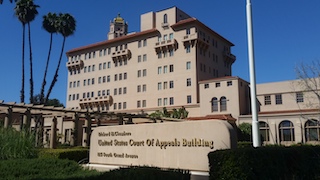At approximately 7:30 a.m. on June 18, 1987, a Baldwin Park Police Department officer found the body of sixteen-year-old Lacy Chandler at a school in Baldwin Park, California. Her body was bloody and there was evidence of 23 knife wounds, each about four inches deep.
Chandler was last seen alive earlier that morning about 3:00 a.m. when she dropped off her boyfriend for work.
Officers began to investigate and spoke with Edward Ramage who told police he had interrupted Lester Robert Ochoa at the same location raping another woman, C.J. Ochoa was later charged with that crime and convicted, but not before the Lacy Chandler murder took place.
Police asked Ochoa if he would be willing to take a voluntary polygraph examination at the Baldwin Park Police Station. Ochoa agreed. During the examination, he admitted to killing Chandler and offered to produce the murder weapon. Ochoa then accompanied an officer to retrieve the knife. Upon returning to the station, he gave a full confession, explaining on the night of Chandler’s death, he had been high on cocaine. He also stated that he had raped Chandler before killing her.
At trial in Los Angeles Superior Court, Ochoa moved to suppress his taped confession and exclude the knife recovered as a result of his confession. The judge denied the motion. The jury then convicted him of first-degree murder, forcible rape, and kidnapping. Following a separate penalty phase trial, the same jury imposed a death sentence and the trial court judge refused to modify the sentence. Ochoa was also sentenced to six years for forcible rape and five years for kidnapping, each to run consecutively, but were stayed.
Following his conviction and the imposition of a death sentence, Ochoa filed a motion for a new trial based, in part on newly discovered evidence which he asserted the prosecutor failed to disclose in violation of Ochoa’s due process rights under Brady v. Maryland (1963) 373 U.S. 83. The “new evidence” that was not disclosed earlier by the prosecution were jailhouse informant statements that suggested the witness was involved in the murder. The trial court judge denied the motion.
Ochoa’s conviction and death sentence were automatically appealed to the California Supreme Court, who affirmed Ochoa’s conviction and death sentence. Ochoa twice appealed the ruling to the U.S. Supreme Court, which denied each of his writs of certiorari.
Ochoa then commenced habeas proceedings in the United States District Court for the Central District of California in 1999. The district court denied and dismissed the petition and declined to issue a certificate of appealability on any of his claims and entered judgment.
 U.S. Ninth Circuit Court of Appeals Pasadena
U.S. Ninth Circuit Court of Appeals Pasadena
He then appealed nonetheless to the United States Court of Appeal for the Ninth Circuit, which agreed to review five of his nine grounds for appeal.
The scope of this article will only summarize the Ninth Circuit’s ruling on the Brady claim, in Lester Robert Ochoa v. Ronald Davis, Warden (2021 DJDAR 11363).
The Ninth Circuit began its analysis by noting that the Antiterrorism and Effective Death Penalty Act (AEDPA), under which Ochoa’s appeal was brought, narrowed the grounds on which a successful habeas claim could be made, allowing claims only to succeed when the convictions are contrary to, or an unreasonable application of established federal law or are an unreasonable determination of the facts.
The court continued, explaining that the Brady doctrine requires that the prosecution turn over all exculpatory evidence to defendant in a criminal case. Suppression of evidence violates due process where the failure to disclose prejudices defendant.
Here, the prosecution had an obligation to disclose to the defense the jailhouse informants’ statements, but the failure to do so was not clearly prejudicial. While Ochoa was correct that the informants’ statement was relevant to impeach one of the prosecution witness’ testimony, how material the informants’ statements were was not a question of relevance but of prejudice.
After all, all the evidence in the case pointed to Ochoa’s guilt, knowledge of the location of the murder weapon, and the forensic evidence contradicted the jailhouse informant’s testimony. Finally, the undisclosed informant’s statements were found not to be credible and of little persuasive value by the trial court and the California Supreme Court, so it was not an unreasonable application of the law to have denied Ochoa’s motion for a new trial based on such statements.
We present this summary for the reader to emphasize that just because there may be undisclosed evidence that the prosecution did not provide to the defense, that violation must be evaluated further for how prejudicial it was to the conviction. Here, in Ochoa’s case, it apparently made no difference to the conviction or sentence, so it was a meritless claim by him that such a violation entitled him to a new trial.
The citation for the Unites States Court of Appeals for the Ninth Circuit ruling discussed above is Lester Robert Ochoa v. Ronald Davis (9th Cir., 2021) 16 F. 4th 1314.
For more information about Brady issues, please click on the following articles:
 U.S. Ninth Circuit Court of Appeals Pasadena
U.S. Ninth Circuit Court of Appeals Pasadena